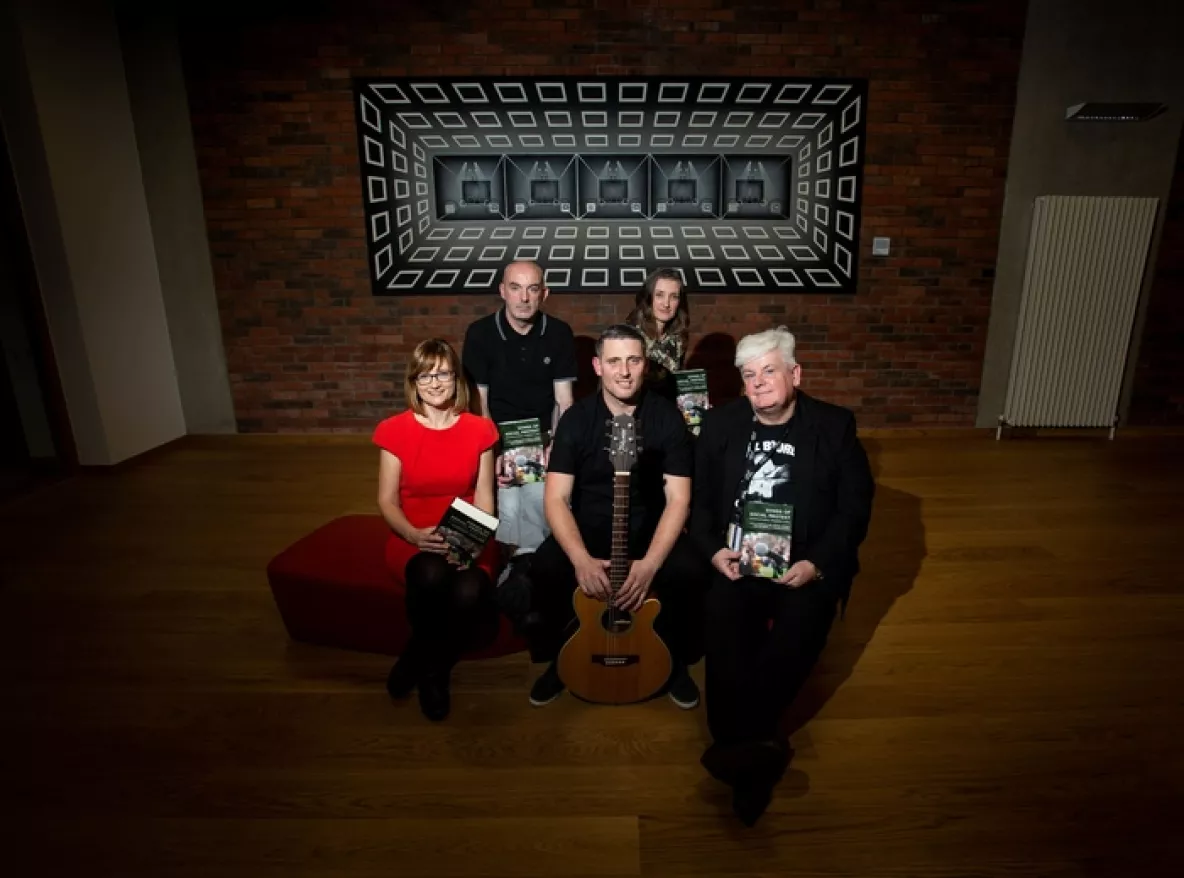
A major collection of essays entitled Songs of Social Protest was launched this week at the University of Limerick. Running to almost 700 pages, the book was edited by Aileen Dillane, Martin J. Power, Eoin Devereux and Amanda Haynes. It features research on many diverse singers and genres from Damien Dempsey, Billie Holiday, to rap, reggae and punk and to a host of other artists, amateur groups, and collectives from different regions and times. The book has already been heralded as a tour-de-force by international academic experts and features 33 contributions from the four corners of the globe on the power of music to bring about social change. Its launch further underscores the pivotal role played by the University of Limerick in the study and analysis of popular music. Members of the editorial team have previously published books and articles on David Bowie, Morrissey and Damien Dempsey.
Speaking at the launch held at the new Glucksman Library, co-editor Dr. Aileen Dillane said: “Song is such a powerful medium, especially when it comes to calling out injustices. Songs of social protest operate in a variety of ways - as noisy, exuberant expressions of solidarity in a collective; as individual, insightful narratives or messages that draw attention to specific causes; as something in between. All cultures in this world have music and song. Singing is a primary mode of communication. Put that together with social and political protest and it's easy to see what a potent combination they make.”
The book, published by Rowman and Littlefield International (London) was launched by the award-winning novelist Donal Ryan who is also a teacher of creative writing at the University of Limerick. It is expected the book will be adopted worldwide in the teaching of music and song.
A unique aspect to the launch was the editors' decision to invite Steo Wall to perform. Steo Wall has recently released his critically acclaimed debut album Where I’m From. The musician who has worked with the likes of Damien Dempsey and Davy Spillane said: “I was very honoured to be asked to sing at the launch of this important book, Songs of Social Protest. A song is a very powerful thing, a piece of music has the power to transport you through time and space, take you right back to a time and a place and make you feel the very same emotions you felt 20 years ago. I think any songwriter or artist worth their salt should reflect what goes on in society, the good the bad and the scary. A good song should hold a mirror up to the world and get people thinking and talking about the real issues.”